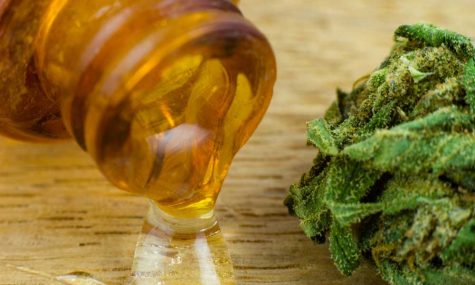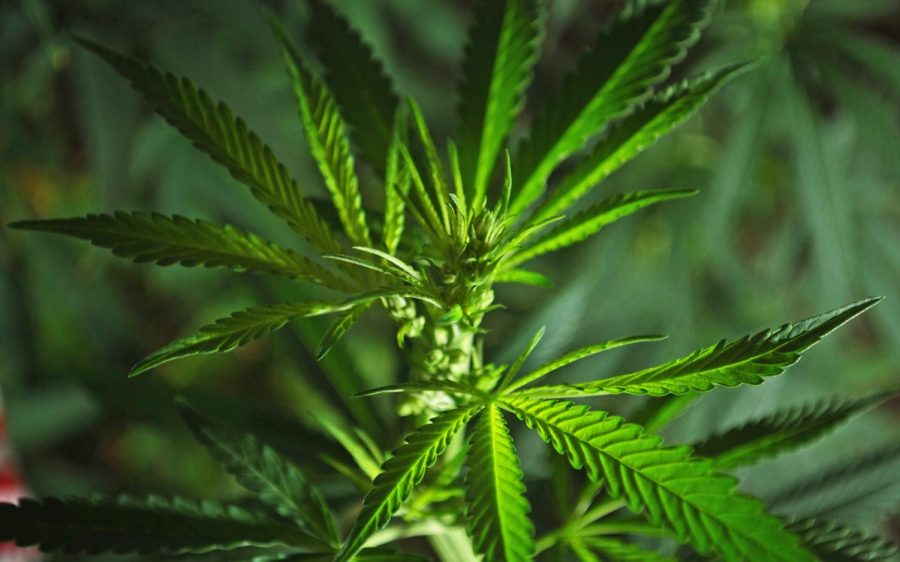Farmers in Indiana want legal cannabis and hemp crops
Neighbors in Kentucky are pulling in approximately $3,000 per acre with industrial hemp farming
An imbalance in supply and demand for soybean and corn crops has left Indiana’s farmers in a slight predicament.
Soybean and corn are the primary money-making crops in Indiana. According to the U.S Department of Agriculture, a drop in demand has left farmers scrambling to make ends meet and, interestingly, legal weed could be the answer.
Members of a proactive organization called the Indiana Farm Bureau are blaming the drop in demand on President Donald Trump’s recently imposed tariffs on Chinese products.
Bob White is the national relations director for the agency. He claims that Hoosier farmers are feeling the financial implications of Trump’s tariffs on Chinese products; something that has forced those in the agricultural space to seek out alternative types of crop revenue.
“When you’ve got high supplies, you’ve got low prices,” he told WFYI Indianapolis.
Indiana’s farmers require a new stream of crop revenue
If Indiana’s struggling farming community is to emerge in a more prosperous light, agricultural workers need to carefully consider their options.
Agriculture trade advocates within the State of Indiana are leaning towards the idea of industrial hemp cultivation. Supporters of the idea believe that this option could be the most lucrative for Indiana’s agriculture economy.
Hemp, a non-intoxicating variety of the Cannabis sativa plant species, is still illegal at federal level. Considering the fact that over $67 million worth of hemp seed and fiber was imported by Uncle Sam back in 2017, there’s no wonder why advocates are backing the idea.
“Farm income these days is pretty tough,” said the CEO of Zolman Farms in Kosciusko County, Don Zolman, during a discussion with the Interim Study Committee on Agriculture and Natural Resources. “To have an alternative crop to add to the income stream for Indiana farmers is vital at this time.”
In order to help Indiana’s agricultural industry thrive once more, the Indiana legislature needs to pass a bill that was put forth during the last session. The measure, if passed, will enable Indiana’s farmers to legally grow and produce industrial hemp.
Should this happen, it will be a milestone event and the first of its kind to occur since World War II broke out.
Unfortunately, things haven’t exactly started off smoothly for Indiana farmers. Although it was given the thumbs up by the House of Representatives and the general public, the bill to permit industrial hemp cultivation in Indiana was amended in the 11th hour by the Senate. The amendment was trivial – Indiana must first conduct research on the money-making potential of hemp crops prior to the bill being passed.
The man to blame for the political hiccup was Republican Governor Eric Holcomb. He affirmed that, in spite of his decision to amend Indiana’s hemp cultivation bill, he indeed does have interest in it and is “not opposed to it.” On the other hand, when the Hoosier state enacts the hemp program, Holcomb wants it to be “done right.”
Indiana’s farmers could be earning money with legal hemp or cannabis
Industrial hemp has been intensely researched by the Interim Study Committee on Agriculture and Natural Resources over the past summer. Cannabis advocates are striving to fill lawmakers with as much information as possible prior to the next legislative session.
Meanwhile, Hoosier farmers are left scrambling for cash crops, as their neighbors in Kentucky reap the financial rewards of the hemp agricultural industry. At the current time, Kentucky is pulling in approximately $3,000 per acre.
“Indiana is missing out on a novel farm-level income stream,” says Dr. Ronald Turco of Purdue University.
The agronomy expert is right. If Indiana State law permits hemp cultivation beyond the currently allowed research purposes, farmers in Indiana will have the opportunity to produce hemp for the creation of medicinal cannabis products, such as CBD oil.









